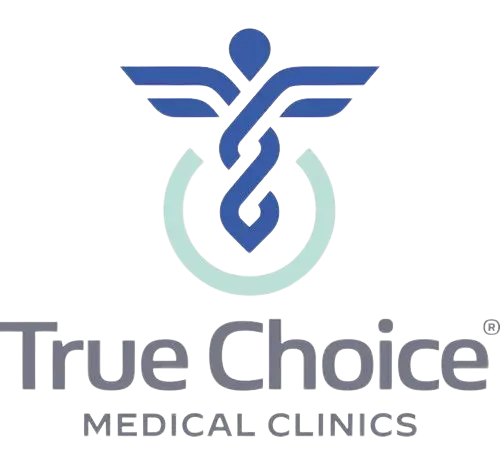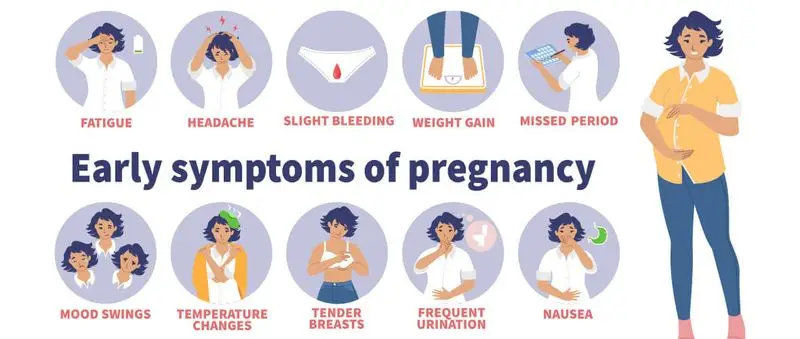I Don’t Feel Right, What Should I Do?
It is almost that time of the month but you are having more than typical premenstrual symptoms of cramping and sore breasts. Could you be pregnant? Should you take a pregnancy test even if you haven’t missed your period? Whether you are trying to avoid or achieve pregnancy, it is good to know the first signs of pregnancy, when, and why they occur to help you with next steps.
What are the most common early signs of pregnancy?
1. Missed period. You first must ask yourself: are my periods regular? If so, how often do they come and how many days are in your cycle? If not, what are the underlying factors? Are you stressed, on oral contraceptives, breastfeeding, or had anysignificant weight loss or gain? Typically, a woman’s entire cycle is 24-36 days. If ovulation occurs and there is no implantation, progesterone levels will decrease, the lining of the uterus will break up and menstruation will begin. For most women who have a normal, healthy cycle length, menstruation occurs approximately every 4 weeks. If a week or more has passed since your expected menstrual cycle, this may be an early sign of pregnancy.
2. Fatigue. Hormonal changes are likely the cause of fatigue. Your body is producing more blood to carry nutrients to your growing baby. Your blood sugar levels and blood pressure are also lower. Hormones, especially increased progesterone levels, are responsible for making you sleepy.
3. Tender, swollen breasts. Hormones in your body are preparing your breasts for lactation. The milk ducts are growing and being stretched as they fill with milk early in pregnancy. This causes your breasts to be more sensitive, particularly your nipples. This may cause you discomfort, but will likely decrease after a few weeks as your body adjusts to hormonal changes.
4. Nausea and/or Vomiting. Morning sickness, which can strike at any time of the day or night, often begins one month after you become pregnant. The hormone estrogen rises during early pregnancy and could contribute to queasiness. During early weeks of pregnancy, the embryo is attached to a tiny yolk sac that provides nutrition to the developing embryo until the placenta forms and takes over the transfer of nutrients to the embryo. Most women stop having morning sickness and start to feel better at approximately 9 or 10 weeks gestation when this occurs. Stress or fatigue is suggested to cause a physical reaction within the body, leading to nausea and vomiting.
5. Increased urination. You might find yourself urinating more often than usual. The amount of blood in your body increases during pregnancy, causing your kidneys to process extra fluid that ends up in your bladder.
6. Changes in appetite. When you’re pregnant, you might become more sensitive to certain odors and your sense of taste might change. Like most other symptoms of pregnancy, these food preferences can be chalked up to hormonal changes. Sensitive stomach could be made worse while trying to adapt to the changes of pregnancy.
7. Weight gain or loss. Hormonal changes during early pregnancy can cause you to feel bloated, similar to how you might feel at the start of a menstrual period. In addition, stressor fatigue is suggested to cause a physical reaction within the body, leading to nausea and vomiting which can lead to decreased nutritional intake and weight loss.
Although these are the primary classic signs of pregnancy, they can also be signs of a hormonal imbalance, stress or approaching illness.
The next step is to take a pregnancy test because it is possible to be pregnant with or without these symptoms. Although a pregnancy test cannot determine if the pregnancy is viable, it can help guide your next steps.
At True Choice Medical Clinics, we offer , medical-quality pregnancy testing. When you make an appointment, one of our compassionate staff members will provide you with a pregnancy test, answer any questions you may have and share your results with you during the same visit. Our pregnancy tests are lab quality with a 99% accuracy rate. Our services are confidential, and any information shared during your visit will be kept private.
If you’ve tested positive for pregnancy, the next step is to set up an appointment to receive an ultrasound at no cost to you.
To make an appointment for a no-cost pregnancy test and ultrasound, call 858-397-1970 today and speak with one of our trained medical professionals.
https://www.pregnancybirthbaby.org.au/pregnancy-0-to-8-weeks





